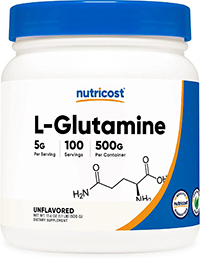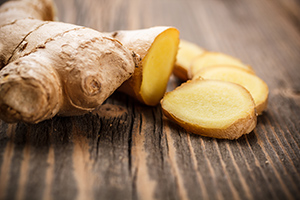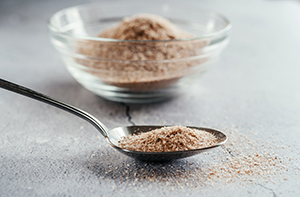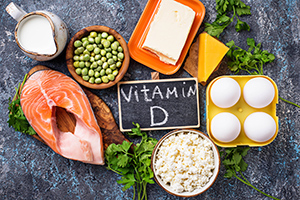Table of Contents

Many jokes have focused on digestive issues; however, dealing with digestive problems is no laughing matter. Bloating, irritable bowel syndrome, excess gas, and constipation are some telltale signs of poor gut health. Still, poor gut health is also linked to other health problems, including autoimmune diseases, thyroid issues, sleep problems, fatigue, fluctuating weight, and even depression.
The gastrointestinal tract is made up of bacteria and microbes. A healthy gut mainly contains the beneficial bacteria to aid digestion, ward off infections, and balance hormones.
Aside from our diet, we can support our gut health by taking digestive supplements. Here are some gut health supplements to help maintain balance in your digestive system, which will help reduce bloating and improve your gut health.
Digestive Supplements: Probiotics and Prebiotics
A healthy gut needs a healthy balance between bacterial populations. If harmful bacteria outnumber the more beneficial bacteria, you can suffer from a gut microbiome imbalance which can cause bloating and abdominal discomfort.
Probiotics are healthy bacteria that help aid the digestive system. Eating probiotic foods or taking probiotic supplements can help balance the gut microbiome and lead to a healthier digestive system.
Many people get perplexed by deciphering the difference between probiotics and prebiotics. Probiotics are beneficial bacteria; prebiotics are the fiber-rich food that probiotics need to thrive and multiply. Therefore, more probiotics equal improved gut health. Prebiotics are necessary to help maintain a healthy number of healthy bacteria in the gut. You can take probiotic supplements, or you can also take a combined probiotic and prebiotic supplement. The choice is yours, contingent on your requirements.
L-glutamine

L-glutamine is an amino acid that works in several ways. One is to help repair the intestinal lining, contributing to a healthy digestive tract. L-glutamine is also known to promote the growth of beneficial bacteria in the gut and can help fight off cell oxidation, as it is also a powerful antioxidant.
Our body already produces L-glutamine naturally, but if your diet is lacking, taking L-glutamine supplements can further boost its function. Just a word of caution—taking too much L-glutamine is not good and can lead to a leaky gut, so make sure that you only take it if you need extra supplementation and take only the required dosage.
Ginger

Ginger is well-known for its anti-inflammatory properties, making it beneficial not only for arthritis but in fighting bloat and relieving digestive problems. This powerful antioxidant can speed up the metabolic rate among people with indigestion. It can also decrease inflammation in the gut, which can cause irritable bowel syndrome. Ginger Root Supplements are available in capsules and tablets, and if you can’t take pills, teas and syrups are also available.
Digestive Enzymes Necessary for Bloating and Other Digestive Issues
Digestive enzymes are the elements working hard to digest and break down the macronutrients in our foods. These enzymes are found in our mouth, stomach, and intestines, and we naturally produce these enzymes to help ensure maximum nutrient absorption. Not enough digestive enzymes can lead to gas, bloating, and indigestion issues. If we don’t produce enough digestive enzymes, we may miss essential nutrients from our diet, leading to more health issues. Supplementing with digestive enzymes can help ensure that our digestion works as well as it should.

Psyllium
Psyllium is a fiber component known for supporting digestion. This prebiotic relieves constipation by trapping water in our intestinal tract and increasing the bulk of the stool, making bowel movements more manageable and regular. As a prebiotic, psyllium can also boost the beneficial bacteria in your gut and reduce bloating and indigestion.
Vitamin D

Vitamin D, the sunshine vitamin, is not usually associated with digestion. However, it is beneficial to gut health. Vitamin D can help relieve symptoms of irritable bowel syndrome and improve other gastrointestinal syndromes, such as stomach pain, bloating, and gas.
Gut health goes beyond the digestive system. It is closely linked to our immune system health and nutrient absorption. Ensuring that our gut is healthy is one way to take care of our bodies and ensure that we are in the best health, from top to bottom!
Frequently Asked Questions
I’ve noticed “gut-soothing” supplements like slippery elm and marshmallow root. Are they worth trying?
Slippery elm and marshmallow roots contain mucilage, a gel-like material that coats and soothes irritated tissues. Some research suggests they may be helpful for acid reflux and inflammatory bowel conditions. However, more rigorous studies are needed to confirm their efficacy.
My digestion is often sluggish. Could I benefit from a digestive bitters formula?
I’ve heard about L-glutamine for gut health. What’s the story there?
L-glutamine is an amino acid that helps maintain the gut lining’s integrity. Research indicates it might be beneficial for those with “leaky gut” syndrome and/or inflammatory bowel disease. Still, again, more studies are needed to understand its impact fully.
My doctor mentioned betaine HCl with pepsin. Is this a good option for me?
Betaine HCl with pepsin is designed to increase stomach acid levels. It may be helpful for those with low stomach acid (hypochlorhydria), a condition linked to impaired nutrient absorption. However, it’s important to consult your doctor to determine if this is among the appropriate digestive supplements.
Should I consider comprehensive digestive supplements that blend enzymes, probiotics, and botanicals?
Some research suggests that multi-ingredient digestive supplements might offer synergistic benefits. However, the specific formulation is crucial. Look for products with clinically studied strains of probiotics and enzymes with proven activity.
What about soil-based organisms (SBOs)? Are they a worthwhile addition to my gut health regimen?
SBOs are a type of probiotic found in soil. Preliminary research suggests they may have immune-modulating and gut-protective effects. Still, more studies are needed to establish their specific benefits.
I’m intrigued by digestive enzymes from plants like bromelain and papain. Should I try them?
Bromelain (from pineapple) and papain (from papaya) are proteolytic enzymes that aid protein digestion. They may help reduce bloating and indigestion for some individuals. However, their effects can vary, and starting with a low dose is essential.
I’m considering a digestive supplement containing artichoke leaf extract. Is it effective?
Some studies have shown that Artichoke leaf extract stimulates bile production, aids fat digestion, and potentially alleviates indigestion. However, more research is needed to confirm its efficacy for various digestive issues.
Are there any risks or side effects associated with digestive supplements?
While generally safe, digestive supplements can cause mild side effects like gas or bloating. Certain supplements may interact with medications, so it’s crucial to consult with your doctor before starting any new supplement regimen.
How do I choose the right digestive supplement for my needs?
The best digestive supplements depend on your needs and health conditions. It’s advisable to consult with a healthcare professional to discuss your symptoms and goals, as they can help you choose the most appropriate supplements based on your situation.
DISCLAIMER: All content on this website is presented solely for educational and informational objectives. Do not rely on the information provided as a replacement for advice, diagnosis, or treatment from a qualified medical expert. If you are pregnant, nursing, or have any preexisting medical concerns, talk to your doctor before using any herbal or natural medicines.
References
- Herbal Medicines 3rd Edition by Joanne Barnes, Linda Anderson, and J. David Phillipson.
- Memorial Sloan Kettering Cancer Center – About Herbs: Slippery Elm: https://www.mskcc.org/cancer-care/integrative-medicine/herbs/slippery-elm
- Current Developments in Nutrition, 2018: The Effect of Digestive Bitters on Gastrointestinal Symptoms, Motility and Secretion: A Narrative Review
- A Review of the Bioactivity and Potential Health Benefits of Herbal Bitters, Evidence-Based Complementary and Alternative Medicine, 2018.
Last update on 2024-07-22 / Affiliate links / Images from Amazon Product Advertising API





